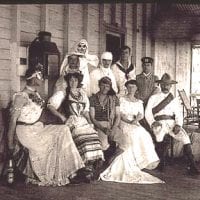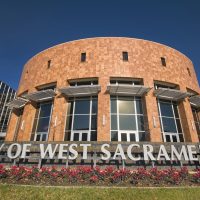 On March 25, the San Francisco Drug Policy Alliance sponsored a showing of “Breaking the Taboo,” a film about the War on Drugs produced by Richard Branson’s son Sam’s indie Sundog Pictures and Brazilian co-production partner Spray Filmes. Afterwards, a panel featuring Virgin founder Sir Richard Branson, California Lieutenant Governor Gavin Newsom, San Francisco District Attorney George Gascón, DPA’s Laura Thomas and activist Dorsey Nunn took questions from the audience.
On March 25, the San Francisco Drug Policy Alliance sponsored a showing of “Breaking the Taboo,” a film about the War on Drugs produced by Richard Branson’s son Sam’s indie Sundog Pictures and Brazilian co-production partner Spray Filmes. Afterwards, a panel featuring Virgin founder Sir Richard Branson, California Lieutenant Governor Gavin Newsom, San Francisco District Attorney George Gascón, DPA’s Laura Thomas and activist Dorsey Nunn took questions from the audience.
Narrated by Morgan Freeman, “Breaking the Taboo,” starts with footage from Richard Nixon when he first declared drugs “public enemy number one” in 1971 and moves on to George H.W. Bush pledging to build more prisons for drug users. The film notes that the US prison population was 330,000 in 1971 and now is 2.4 million. The US, with 5% of the world’s population, incarcerates 25% of its prisoners, largely driven by the drug war and mandatory minimum sentences.
“Breaking the Taboo” was filmed in eight countries and covered meetings of The Global Commission on Drug Policy, along with interviews from former presidents of Switzerland, Colombia, Portugal and Brazil. Former US Presidents Bill Clinton and Jimmy Carter were interviewed for the film, with Clinton admitting his Plan Columbia hadn’t worked by many measures. The successful Portuguese model of decriminalizing all drugs was profiled in the film, which also covered Afghanistan and Mexico.
After the screening, the highly successful Branson (reportedly worth £5 billion), noted that the WOD has been a 50-year failure, and remarked that as an entrepreneur, “If I have a failed business after one year, two years, three years, I’ll close it.” Branson said he told his children if they wanted to have an occasional joint, “just don’t put nicotine in it-that’s the really dangerous part—and do it in front of me.” For his honest admissions about his own marijuana use, Branson is included in a recent Cal NORML flyer challenging Governor Brown’s assertions that “potheads” aren’t productive members of the workforce.
Newsom drew a line, policywise, between marijuana and other drugs. The rising star who turned himself in for alcohol dependence treatment in 2007 while mayor of San Francisco said that he has had two friends die of heroin overdoses, and his goddaughter is a heroin addict. Marijuana has no such baggage, he said, although he knows “more than enough people” who use it.
Gascón, who was appointed by Newsom in 2010 and subsequently elected by 62% of San Francisco voters, was there to speak about a ballot measure he is advancing in November to decriminalize all drug possession offenses to misdemeanors. Branson supported Gascón’s measure in an oped in the SF Chronicle on the day of the screening.
Laura Thomas from DPA picked up on the film’s assertion that 90% of people who use drugs don’t have a problem with them, and said that the 10% who do should be addressed from a health perspective, not a criminal one.
Dorsey Nunn, who shared the DPA Citizen Action award with Cal NORML’s Dale Gieringer in 2011 said, “we must ask, is the War on Drugs another form of modern-day slavery?” He added, “If you keep on punishing, you’ll keep on getting another generation of prisoners.” The overflow crowd seemed to be largely social workers. One noted that the addicts she works with cannot read well, or at all, and Nunn bemoaned the siphoning off of educational resources into the criminal justice system. “This is a war on me,” he said.
After saying that he admired his boss Jerry Brown and that he’s looking forward to serving another term with him, Newsom pointed to Brown’s 1977 signing of determinate sentencing as the beginning of the problem in California, as has Brown.
Yet, Brown vetoed a bill last year that would have defelonized simple possession of drugs, eliminating barriers to housing, education and employment that offenders face after release even in the face of federal prison overcrowding reduction mandates the state is not meeting.
 Newsom stayed afterwards to answer questions from audience members. He said that he had met the day before in Napa with lobbyists for the Prison Guard’s Union and PORAC (Police Officers Research Association of California) towards cooperative solutions. A woman from the audience thanked Newsom for his speech in favor of legalization at the Democratic convention, saying her cannabis stock portfolio jumped in value by $7000 afterwards. Newsom said “Jerry wasn’t happy” with his remarks, in which he said that using terms like pothead, stoner or hippy weren’t helpful to a serious debate. Newsom repeated the statement on MSNBC’s Rowan Farrow show, and at the screening that night.
Newsom stayed afterwards to answer questions from audience members. He said that he had met the day before in Napa with lobbyists for the Prison Guard’s Union and PORAC (Police Officers Research Association of California) towards cooperative solutions. A woman from the audience thanked Newsom for his speech in favor of legalization at the Democratic convention, saying her cannabis stock portfolio jumped in value by $7000 afterwards. Newsom said “Jerry wasn’t happy” with his remarks, in which he said that using terms like pothead, stoner or hippy weren’t helpful to a serious debate. Newsom repeated the statement on MSNBC’s Rowan Farrow show, and at the screening that night.
Co-sponsored by San Diego Police Chief William Lansdowne, Gascón’s measure would save California taxpayers an estimated $150-250 million, 65% of which would be earmarked mental health and substance abuse treatment programs aimed at reducing recidivism. Another 25 percent would go to crime prevention and support programs in K-12 schools. The final 10 percent would go toward trauma recovery services for crime victims.
A request made from an audience member to Branson asking for funding for the 2014 MCLR marijuana legalization initiative went unanswered. Newsom spoke of aiming for legalization in 2016 and the blue-ribbon task force he has assembled towards that end.
Also see: Skin in the Game: Richard Branson Declares America’s War on Drugs Racist SF Weekly, April 2, 2014


